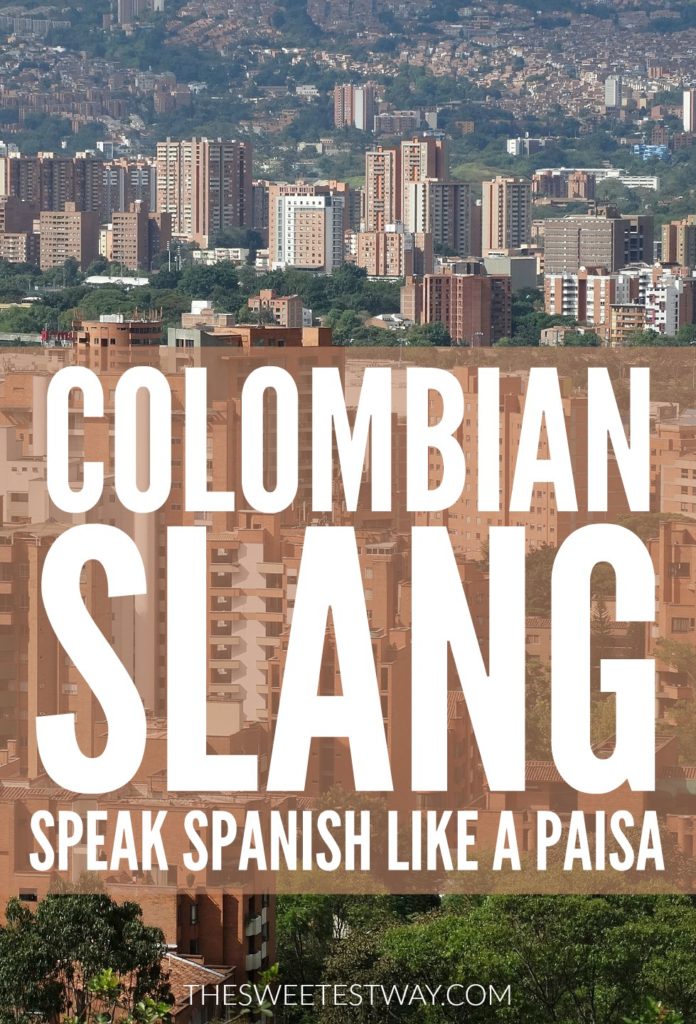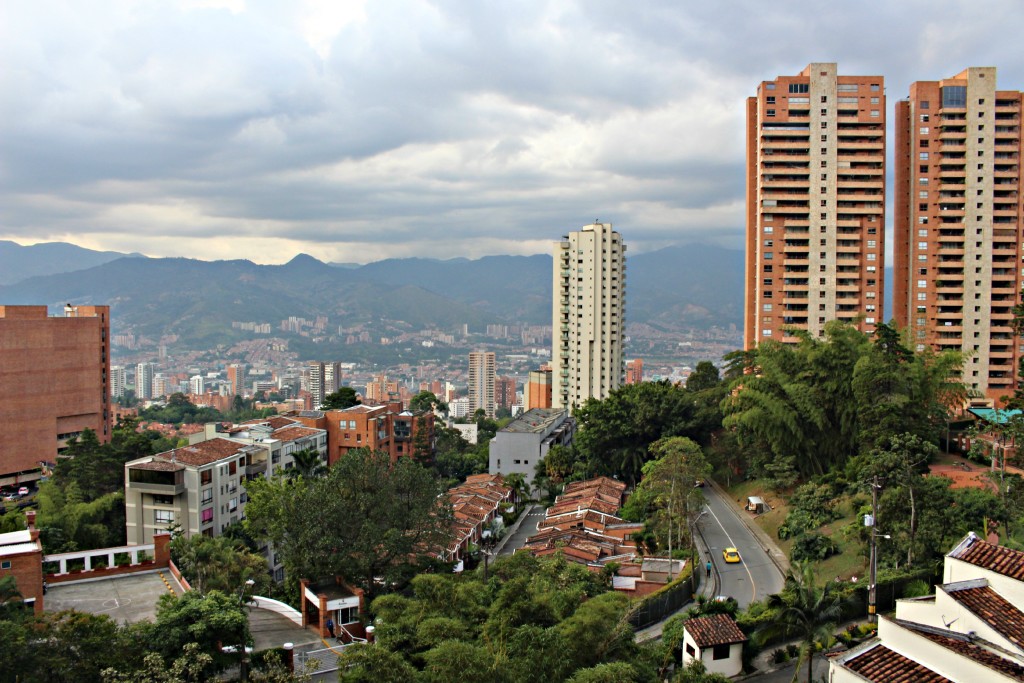I’ve always been a lover of languages, and of Spanish especially. Though I didn’t know it at the time, the many years I spent studying Spanish in school would do very little to prepare me for actually living in a Spanish-speaking country.
In the US, we’re taught a very formal Spanish in school; in my case by a gringa, even (a white woman, i.e. a non-native speaker).
So far in my experience, immersion is really the only good way to learn a language quickly and to learn the informal speech and the slang they just can’t teach you in school.
Of course, it’s best to learn the basics of the language before learning the slang. It’s also a good idea to carry a good Spanish dictionary on your travels.
The following is a compilation of some of the best, the funniest, and the most useful Colombian slang I’ve learned living here for the past few months. Take notes!
Read next: 6 Essential Words & Phrases to Know in Any Language
Where you from, bro?
Not too surprisingly, different terms exist to describe people from the various regions of Colombia. The origin of the term isn’t always clear, but they’re handy to know anyhow.
Those hailing from Pasto near the Ecuadorean border are Pastusos.
People hailing from the city of Cali are Caleños.
People from Bogotá? Rolos.
Those from Medellin and surrounding valleys are called Paisas.
People hailing from the coast are referred to as Costeños.
Gringo (or gringa), though once carrying an American connotation (and whose origin is still hotly debated) now refers to pretty much anyone not from Colombia, and is not considered an offensive term here.
¡Habla Paisa!
The following words and phrases are commonly used in Medellín.
Dar papaya – To give papaya. This idiom refers to the act of creating opportunities for someone to easily rob you. Examples might include a one-armed selfie while in the busy city center, leaving your bag or purse unzipped, or having your iPhone jutting out from your pants pocket.
Taco – Possibly my favorite of all Paisa slang, taco means traffic or traffic jam. Paisas themselves don’t even know the origin of this word, but it cracks me up every time. As far as I can tell, it is only used in this region. ¡Mucho taco!
Parce – Short for parcero (or parcera), this is a commonly used synonym for amigo (friend).
Guayabo – Hangover (noun).
Enguayabado – Hungover (adjective).
Chévere – Cool or awesome. Widely used in many Latin American countries.
Bacano – Cool or awesome, but more typical of Colombia and Medellín.
Chimba – This is a word with many meanings depending on the context in which it is used. I’ve heard chimba can literally mean a woman’s hoo-ha or a sexy, curvy woman (like those you find in Medellín, whether natural or enhanced), but it is most often used to describe something that’s really awesome–which I guess is kinda the same thing, if you think about it. ¡Qué chimba!
You kiss your mother with that mouth?
These vulgar phrases should be handled with care, used only in appropriate circumstances (so, almost never, unless you’re with really good Colombian friends).
Huevón – This can refer to someone who is lazy or stupid. It can be used offensively but is also often used affectionately between friends, following the end of a sentence.
Marica – Gay, sissy, pansy. Used affectionately between friends much like huevón, but even more frequently. This is generally not an offensive word. You’ll likely hear this after every other sentence in Medellín.
Maricón – The offensive variation of marica. I feel bad enough writing it here in Spanish; I’ll let you figure out which F-word it translates to.
Mierda – Shit. A common interjection. ¡Qué mierda!
Chucha – The meaning of chucha varies by country. In Colombia, it might simply mean body odor, but is used to describe anything that’s generally unpleasant. It can mean much more offensive things (like c*nt) in some places, so best not to run around shouting this one.
Me importa un culo – I don’t give a shit, more or less (culo = ass).
¡Hueputa! – What you get when you smash together hijo de puta (son of a bitch) into one easy-to-shout slur. Focus emphasis on the PU syllable for maximum effect.
Pues, pues, pues!
Pues is a conjunction whose literal translation can be either well, since, or then, but it is used in so, so many other contexts in Spanish that, in my mind, it starts to lose meaning.
Colloquial uses of pues can include:
¿Qué más pues? – How’s it going?
¡Dale pues! – Go ahead!
¡Hágale pues! – Do it!
¡Chau pues! – See you!
Spanglish, Spanglish Everywhere!
English seems to be somewhat in vogue in Colombia, to the point where singular English words are often thrown into a phrase or sentence like they belong there. On the bright side, if you’re struggling to think of a word in Spanish, chances are you can just slip in the English word mid-sentence and nobody will bat an eye.
Examples:
Hay un show mañana.
El locker.
Estoy hungover.
Parce, vamos al party.
Es mi teacher de ingles.
When in doubt, DIMINUTIZE IT!
Just about any Spanish word can be made diminutive by adding -ito, -ita, or -ico to the end of it. This doesn’t always literally mean something is small, it’s simply a way of making a word or a request sound more polite. Colombia is by no means the only country to employ this manner of speech, but you’ll definitely impress locals if you can adopt it yourself.
In Colombia, you don’t order un vaso de agua (a glass of water) you order un vasito de agua.
You don’t live in una casa (a house) you live in una casita.
Amor, amorcito.
Amigo, amiguito.
Taza, tacita.
Ensalada, ensaladita.
Cerveza, cervecita.
Caliente, calientico.
And on and on and on.
When in doubt, VERBITIZE IT!
What’s that, you say? Verbitize isn’t a word? Well that’s funny, because in Colombia, just about anything can and will be made into a verb. Better yet, a Spanglish verb! Just add a verb ending (-ar or -ear work well) and you’re good to go.
Examples:
Check = Chequear
Click = Clickear
Link = Linkear
Brunch = Brunchear
Catch = Cachar
To me, the informal and colloquial parts of a language are the real bread and butter of the learning process. You’re guaranteed to get more out of using this type of speech than using the formal garbage we’re taught in schools; at the very least, you’ll get a good laugh out of the locals and you’ll set yourself up for making a few friends along the way.
I hope you found something useful in here for your next visit to Colombia. When speaking someone else’s language, it’s the effort that counts. ¡Suerte!
Read More on Medellin:
- The Best Things to Do and See in Medellin, Colombia
- Safety Tips for Women (and Men) Traveling in Medellin, Colombia
- The 12 Best Things About Being an Expat in Medellin
- 8 Things to Consider Before Moving to Medellin
- Medellin Resources for Travelers and Expats
Do you try to learn slang when studying a new language? What’s your favorite Spanish slang?



